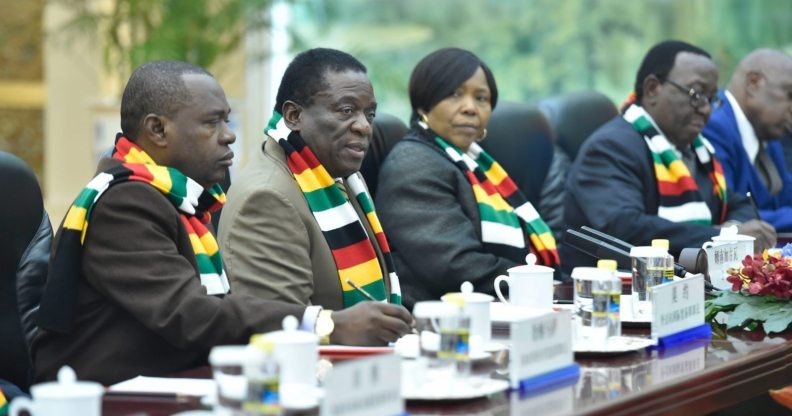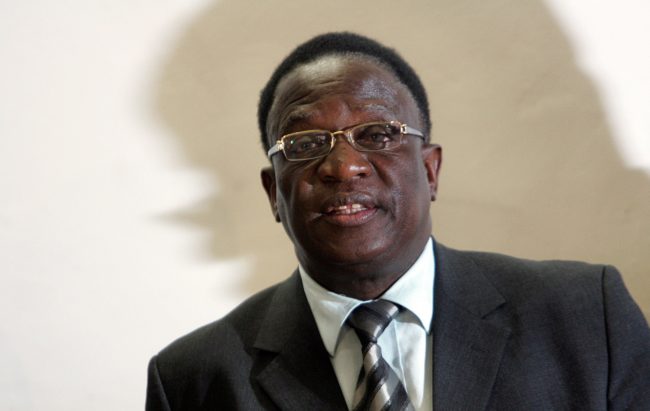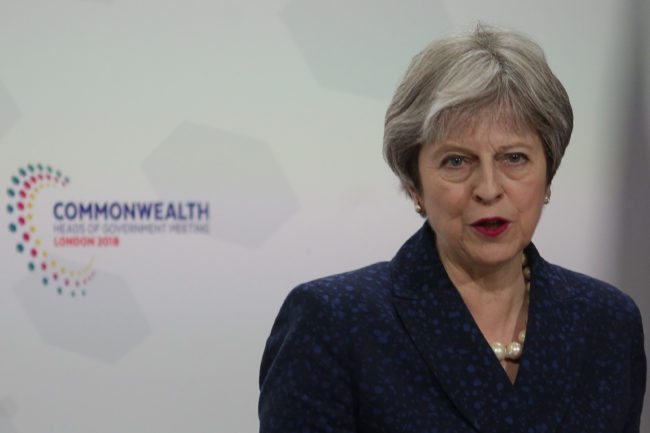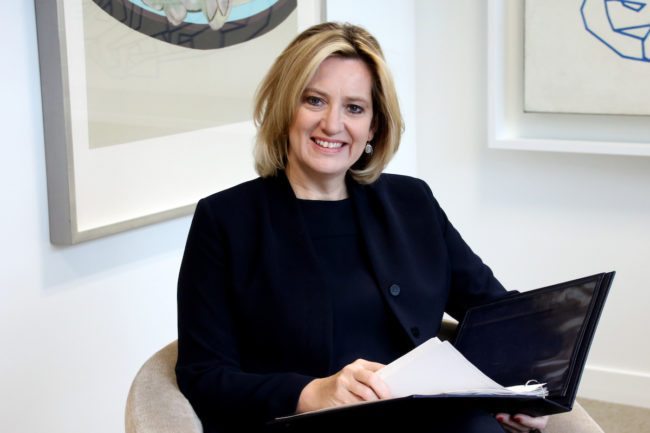Zimbabwe wants to rejoin the Commonwealth, but where does it stand on LGBT rights?

BEIJING, CHINA – MARCH 4: Zimbabwean President Emmerson Mnangagwa during a meeting with Chinese Premier Li Keqiang at the Great Hall of the People on April 4, 2018 in Beijing, China. (Photo by Parker Song- Pool/Getty Images)
Following Robert Mugabe‘s ousting from government, Zimbabwe has applied to rejoin the Commonwealth.
Despite becoming involved in the intergovernmental organisation when it gained independence in 1980, the African country hasn’t been a member since 2003 when the former president pulled it out entirely, in response to its suspension over rigged and violent elections.
According to a statement released on May 21, member countries are “very much look forward to Zimbabwe’s return when the conditions are right.”
Secretary-General Patricia Scotland says, “Zimbabwe’s eventual return to the Commonwealth, following a successful membership application, would be a momentous occasion.”

(Getty)
While Mugabe’s replacement and former deputy Emmerson Mnangagwa has vowed to hold fair and free elections, and voiced his aim of attracting foreign investment and repairing international relations, Zimbabwe’s harsh stance on LGBT rights will not sit well with some countries in the Commonwealth – particularly Britain as it makes strides to decriminalise same-sex relationships.
At the Commonwealth Heads of Government Meeting (CHOGM) in April, Prime Minister Theresa May told group leaders that the UK “deeply regrets” its anti-gay history.
She said: “Across the world, discriminatory laws made many years ago continue to affect the lives of many people, criminalising same-sex relations.
“I am all too aware that these laws were often put in place by my own country. They were wrong then and they are wrong now.
“I deeply regret the fact that such laws were introduced, and the legacy of discrimination, violence and even death that persists today,” May continued.
“As a family of nations, we must respect one another’s cultures and traditions, but we must do so in a manner consistent with our common value of equality – a value that is clearly stated in the Commonwealth charter.

(DANIEL LEAL-OLIVAS/AFP/Getty)
“Recent years have brought progress. Since the heads of government last met, the Commonwealth has agreed to accredit its first organisation for lesbian, gay, bisexual and transgender people. Yet there remains much to do.
“Nobody should face discrimination or persecution because of who they are or who they love,” she concluded. “The UK stands ready to support any Commonwealth member wanting to reform outdated legislation that makes such discrimination possible, because the world has changed.”
Former Home Secretary Amber Rudd, meanwhile, announced that a £5 million fund had been set up to help Commonwealth countries reform laws that discriminate against LGBT people and women.
Rudd penned an article for PinkNews in April 2018 outlining how crucial it is for the UK to “work to improve the lives of LGBT people in this country and support any fellow member of the Commonwealth who wishes to work towards reforming laws that affect LGBT citizens.”

Former Home Secretary Amber Rudd (Home Office)
However, if Zimbabwe were to rejoin the Commonwealth, it would mark yet another country where homosexuality is illegal, despite the efforts to decriminalise such bans across the country.
Out of the 53 countries that make up the Commonwealth, 36 of them continue to enact laws, imposed during the British Colonial era, that criminalise same sex acts.
Since Mugabe’s notoriously intolerant rule, Zimbabwean gay men and women have faced extortion, arrest and even physical torture – and sadly, altering such laws doesn’t seem like a priority to current leader Mnangagwa.
When challenged on the country’s stance by CNN, he explained that “in [his] constitution it is banned – and it is [his] duty to obey [his] constitution.”
Mnangagwa also stated that it is not his responsibility to campaign for the repeal of anti-LGBT laws, but rather “the people who want it are the people who should canvass for it.”

